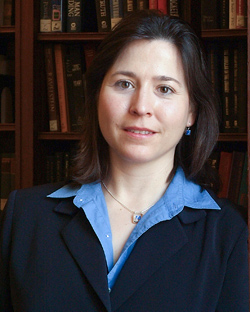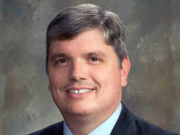 When the Private Investors Forum asked Valerie Gaydos, a Harrisburg-based dynamo with a background in public policy, publishing, technology and entrepreneurship, to help with its annual Angel Venture Fair, the group wasn’t just interested in holding a trade show and sending out a news release.
When the Private Investors Forum asked Valerie Gaydos, a Harrisburg-based dynamo with a background in public policy, publishing, technology and entrepreneurship, to help with its annual Angel Venture Fair, the group wasn’t just interested in holding a trade show and sending out a news release.
Good thing, too, because Gaydos’ expertise in helping startup companies find funding and develop a strategic vision is one of the reasons the 12th annual angel fair is among the most meaningful angel investor gatherings in the region. The fair has helped emerging growth companies raise $16 million since Gaydos took it over in 2004. It provides a unique training program that screens, prepares and grooms best of class entrepreneurs for accredited investors over three months prior to the fair. Up to 50 semifinalists will present their companies on March 4 and be narrowed down to 30 finalists for the April 6 capstone event at the Union League in Philly.
Gaydos’ company, Capital Growth Inc., specializes in business building, financing and organizational development. She is also president of Fifty-First Associates LLC, an association management and government relations firm in Harrisburg. She previously served as president of the Pennsylvania Angel Network before taking on the role of executive director for the Private Investors Forum, a non-profit consortium of angels in the Mid-Atlantic.
As a member of the national Angel Capital Association’s policy committee, Gaydos is pushing for state tax credits–Wisconsin has had noted success with them–and federal tax credits that she and her team believe will spur economic development and be a final deciding factor for potential angel investors to put money on the table for entrepreneurs.
Gaydos talked to Keystone Edge about the nuances of angel investing and gave some advice for entrepreneurs hoping to find money at the upcoming angel fair.
Keystone Edge: How did you get started in venture funding?
Valerie Gaydos: I started working in the state senate for leadership, but found great interest in entrepreneurship and technology after being exposed to some of the technologies that were being developed in Pennsylvania’s colleges and universities. I had an offer to help start-up the Technology Council in Baltimore and couldn’t turn it down. I did that for five years and just loved working with entrepreneurs. As the whole technology boom proliferated in the 90s I was in the right place at the right time. And, in 1995 I decided to start my own business–a venture capital newsletter. I saw hundreds of entrepreneurs seeking capital but saw that they really didn’t have enough information about prospective investors and especially nothing affordable. What happened was they were sending their business plans to people they didn’t know anything about. At the time, one of the few ways to research information about venture investors was a very expensive service called VentureOne. The best way to describe it was that it was sort of what LexisNexis is to lawyers and cost thousands of dollars to access. My publication was a monthly newsletter and online database that reported on deals and did interviews with venture investors as a subscription publication. While it was not as comprehensive nor as complete as VentureOne, it was affordable. I liked to jest that it was sort of the “Wal-Mart of VentureOne.” It was a needed service at the time when there were few affordable options for the entrepreneurs who I really wished to help.
But the best of all is that I have fun at what I do. I love entrepreneurs. I get such a charge out of being around people with such high energy, big ideas, and big thinkers, people who want to make a difference. Thus, some of my payback, which doesn’t come in the form of money, is just loving what I do.
KE: What messages can be found in the book you’re working on?
VG: When you look at this economy, there are a lot of people questioning what they’re going to do next. The economy is changing, no doubt. It really takes perseverance and the right personality. It’s not easy but it’s the perfect time to start a business. You’ve got to almost be a pit bull and be persistent and not take rejection. I think now is the time to really dive into the entrepreneurial pool. While capital is still hard to find and lending is getting harder and harder, I don’t think there are many options other than working hard and working smart. There is indeed money out there. But, angel investors want to find people with certain attributes. Some people make it harder than it has to be but it is actually quite simple. Thus, I am writing about those myths and realities of raising early stage capital as well as the experiences and lessons learned by entrepreneurs who have successfully gone through the process.
KE: How has angel investing changed and developed over time?
VG: Investors have been acquiring businesses and making minority investments in privately held companies since the dawn of the industrial revolution. At the turn of the 20th century, people didn’t call them angel investors, people just went out and “did deals.” With few exceptions, private equity in the first half of the 20th century was the domain of wealthy individuals and families–think Andrew Carnegie, J.P. Morgan and the Rockefellers. In the 1960s and 70s, venture investing changed as large state- and company-run pension funds became such a huge source of accessible capital. While many funds over the last 30 years included investments from wealthy individuals or angel investors, large pension funds had larger pools of money to invest and were much easier to tap.
Over time, and with many of the early west coast funds enjoying financial success and creating many successful entrepreneurs as well as new partners, angel investing proliferated. Now that pension funds are increasingly a smaller source of capital for venture funds for a lot of different reasons, many VCs are asking where to find capital next. With many angels, they do it themselves, and they’re becoming what venture used to be. People think angel investing came out of nowhere, but it’s just cycling back.
KE: What’s important to know about angel investing?
VG: It is equally important to know what angel investing is not as much as it is to know what it is. While angel investors can be generous, it is not philanthropy. Think of it this way: Angel investors spend their own money, while many venture capital funds are investing someone else’s money. That’s an over-generalization, but it’s probably the best major distinction. Think of it this way, the venture guy has to answer to a set of partners and investors who invested in the fund based on a specific set of criteria that the fund had outlined. Angel investors invest their own money. They don’t have to answer to anybody and often never do. Well, maybe to their spouse. But, sometimes the payback isn’t just money. Interestingly, the Angel Capital Association has done studies about why people get involved in angel investing. A good many of them are over the age of 50, retired and simply stated that they don’t want to just go out and play golf. Many of these angel investors spent their lives developing a company before cashing out, so they just can’t and certainly don’t want to become sedentary. A lot of them come back and engage in the very same industries in which they were involved and look for opportunities to help a company using their knowledge base and skills in addition to their capital.
KE: What’s the culture of angel investors like in Pennsylvania?
VG: We’re one of the few regions where angel groups actually have a lot of member crossover. It’s like a college campus where you can be a member of multiple clubs or fraternities. We have 18 or more angel investor groups in PA and all 18 function very differently. Some are dinner clubs that meet once a month, some do breakfast meetings at a law firm, some meet every six weeks and have screening committees. But, the most valuable aspect of the Pennsylvania angel investor community is that there is a lot of business expertise that resides in Pennsylvania. Working together to find, invest, build and expand a company is a team sport and the angel investors in Pennsylvania are working hard to work together.
KE: How about some advice for the angel fair hopefuls?
VG: Angel investors are not philanthropists. They’re calculated risk-takers, which now seems to have become a dirty word. When you talk to angel investor, stop talking like a sales person. What you need to do is talk to them like individuals. Follow the golden rule and try to understand where they’re coming from. They’re generous and will take many risks that venture guys won’t. If you can show an angel investor why you will succeed, they will listen and take chances that others may not. In many respect, angels are truly the unsung heroes in this story. Oftentimes, angels are at the forefront of bringing companies to the table in the first place and make the first investment which gets companies started. But are often the last of the folks to get the credit they deserve for doing so. But as mentioned, sometimes it is indeed for the love of the game.
Joe Petrucci is managing editor of Keystone Edge. Send feedback here.
To receive Keystone Edge free every week, click here.


